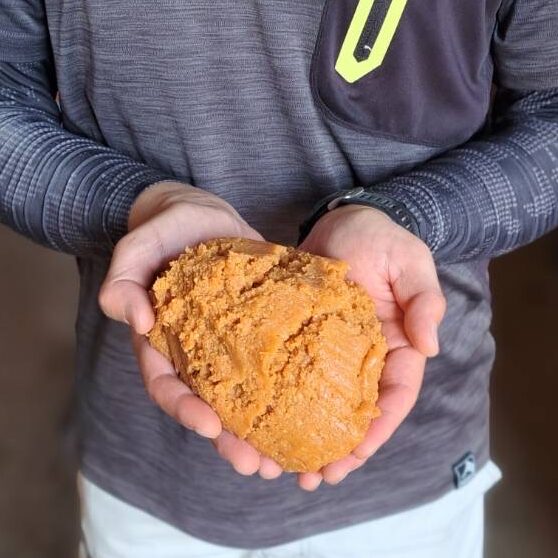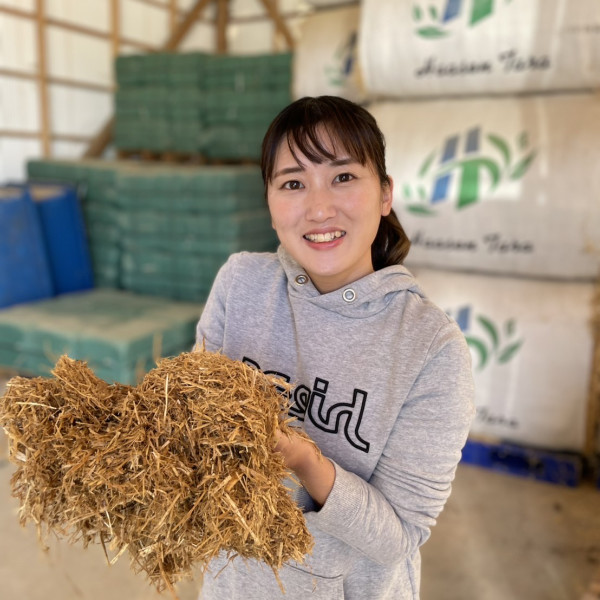
At Jukuho Farm, we produce and provide our own fermented TMR (Total Mixed Ration) using by-products from food manufacturing as feed. These food manufacturing by-products include Izumo soba, okara, and soy sauce lees. Since they were originally intended for human consumption, they are nutrient-rich and high-quality ingredients. These feed components contribute to providing the stable nutrition needed for raising mother wagyu cattle and help maintain meat quality.
We provide TMR specifically formulated for each stage, including fattening, breeding, and calf (growing) periods. To ensure that all necessary nutrients are consistently supplied until shipping or calving, we regularly conduct ingredient composition tests on the raw materials and bacterial inspections on the produced TMR.
〇Izumo soba(buckwheat noodle in Izumo)
Izumo soba is rich in dietary fiber and calcium. As a high-quality carbohydrate, it serves as an energy source. Soba has an amino acid score of 92, which is higher than that of wheat or rice. Since Izumo soba is made from 100% buckwheat (juwari soba), the outer husk is also used, making it a valuable plant-based ingredient that provides lysine, an amino acid typically abundant in animal proteins. It also contains rutin, a type of polyphenol, which enhances vitamin C absorption and has strong antioxidant effects that help maintain blood vessels. Additionally, it is rich in minerals such as potassium and magnesium.
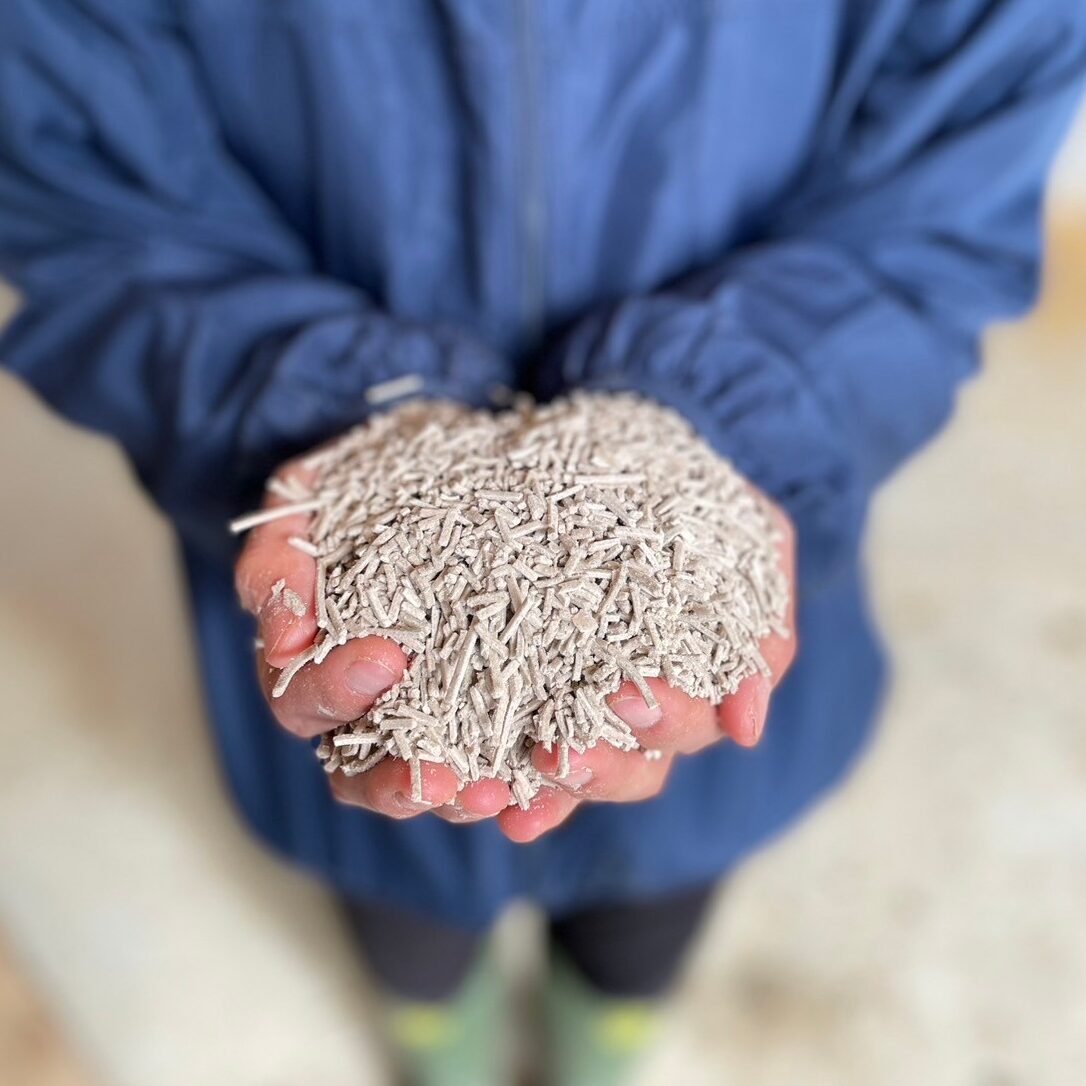
〇Sweet Potatoes
We use steamed sweet potatoes produced during food processing. They have an amino acid score of 83 and are also rich in protein. Heat-treated proteins are efficiently absorbed and place less stress on the digestive organs. Sweet potatoes are also rich in carbohydrates, vitamin C, vitamin A, dietary fiber, and minerals—nutrients essential for maintaining cattle health.

〇Dent Corn
It is rich in carotene (vitamin A), which is essential for maintaining the body. As an antioxidant for fats, it also helps improve fat quality. By grinding and ensiling the entire plant—fruits, stems, and leaves—it provides high-quality fiber and abundant vitamins. Its high content of antioxidants, such as tocopherols (vitamin E), enhances oxidative stability, improving both the quality and flavor of the fat.
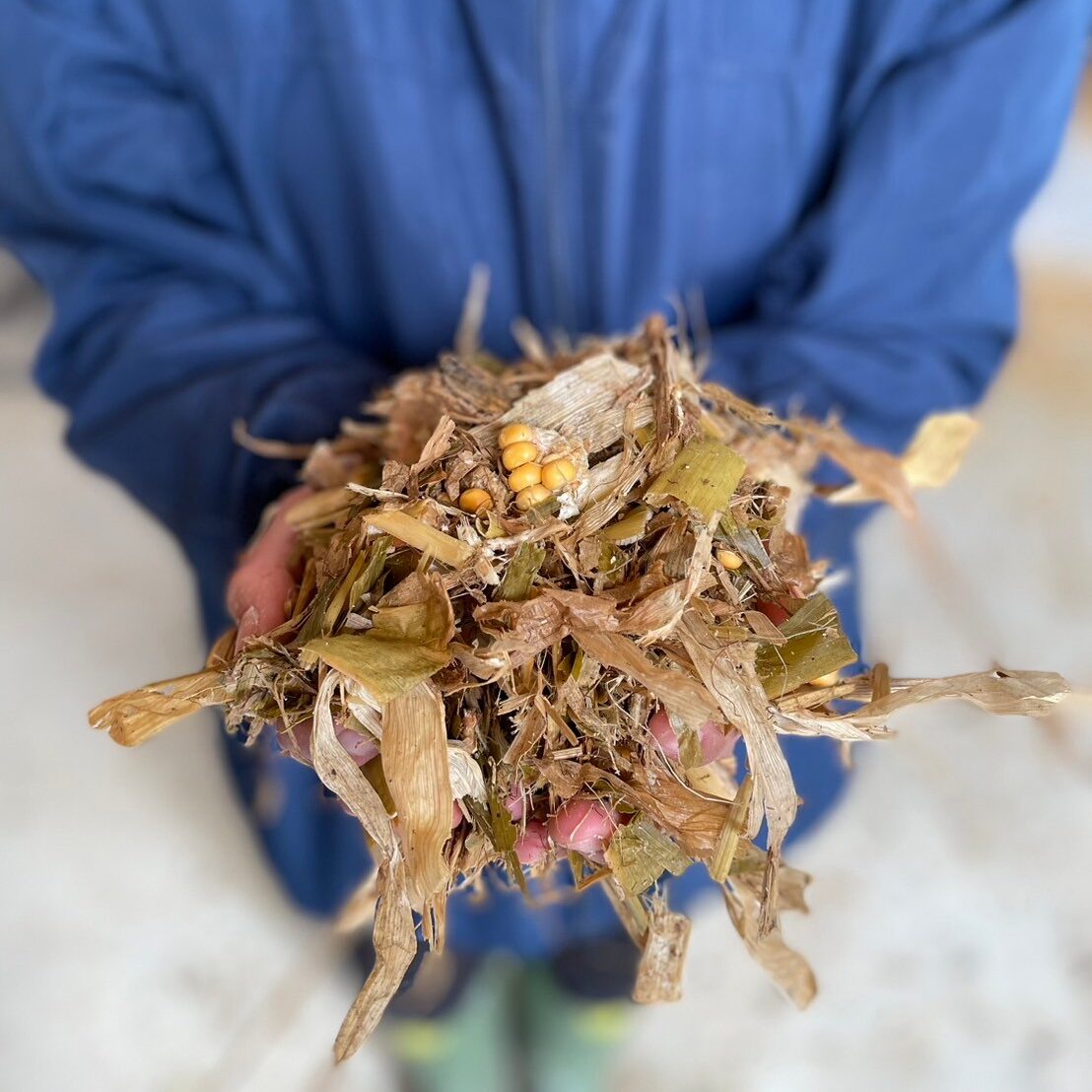
〇Soy milk meal
These are by-products from the production of tofu and soy milk. Made from soybeans, they are rich in high-quality protein and contain abundant dietary fiber. With an amino acid score of 100, they provide a well-balanced range of amino acids—comparable to beef, pork, and chicken.
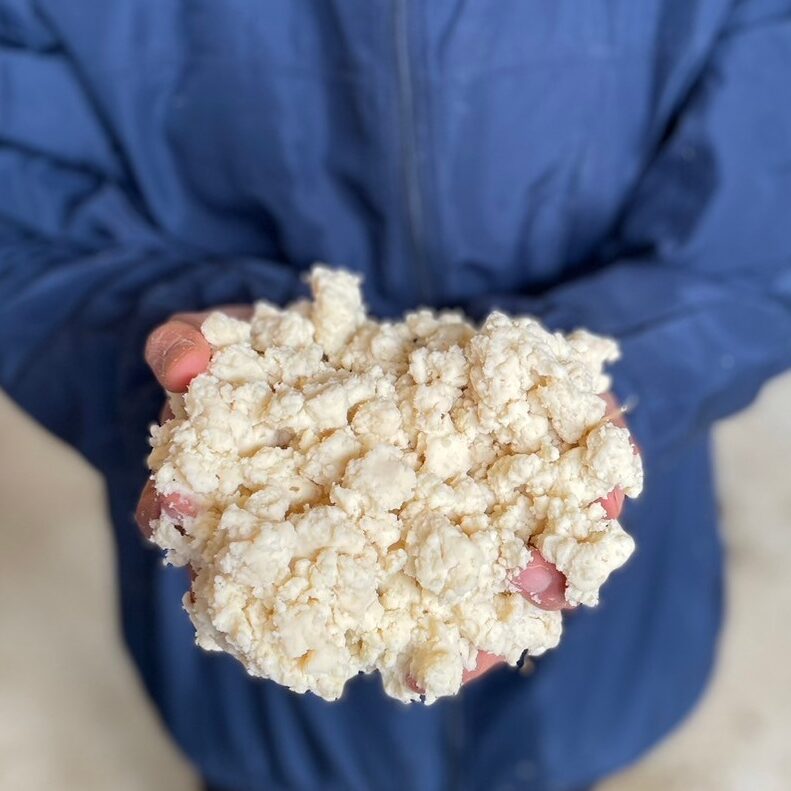
〇Soy sauce meal
These are by-products from soy sauce production. Made from soybeans, they contain high-quality protein. Among the amino acids, they are particularly rich in aspartic acid and glutamic acid, which contribute to umami, enhancing the depth and flavor of meat. Glutamic acid also has diuretic effects and supports ammonia detoxification, making it important for maintaining health. They are rich in vitamins such as vitamin E (with antioxidant effects) and vitamin K (important for blood clotting), and contain minerals like sodium, which help supplement dietary salt.
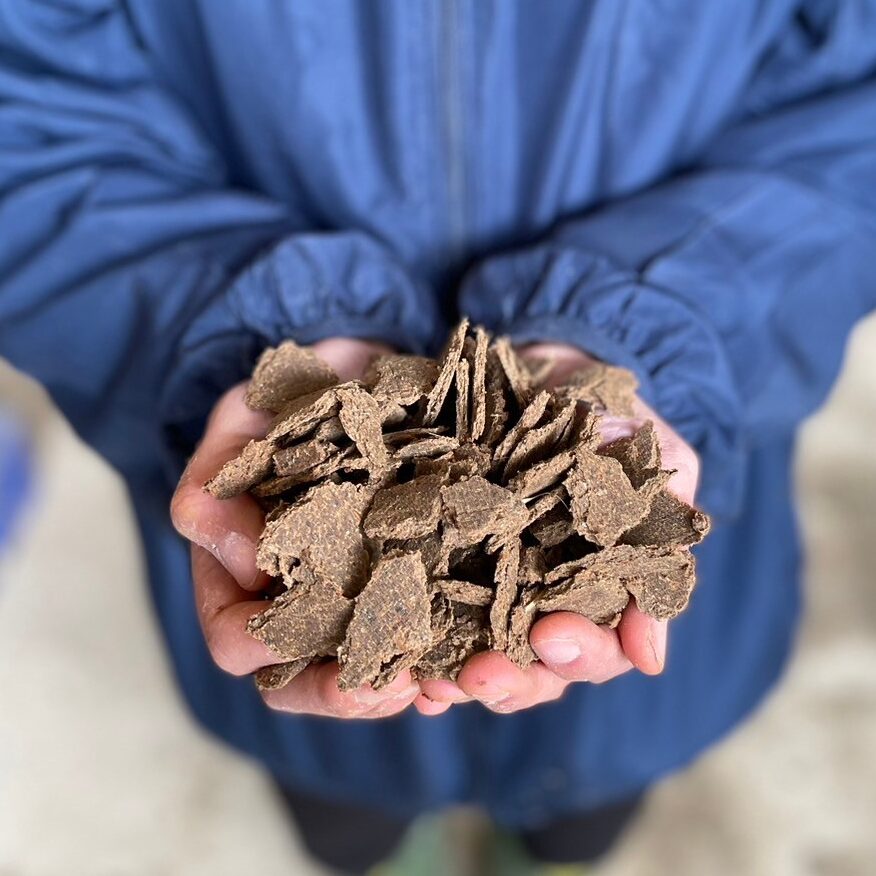
〇Miso
These are miso by-products that became off-spec during production. They are rich in dietary fiber and, being made from soybeans, contain high-quality protein. Among the amino acids, they are particularly high in aspartic acid and glutamic acid, which contribute to umami, enhancing the depth and flavor of meat. Glutamic acid also has diuretic effects and supports ammonia detoxification, making it important for maintaining health. They are rich in vitamins such as vitamin E (with antioxidant effects) and vitamin K (important for blood clotting), and contain minerals like sodium, which help supplement dietary salt.
